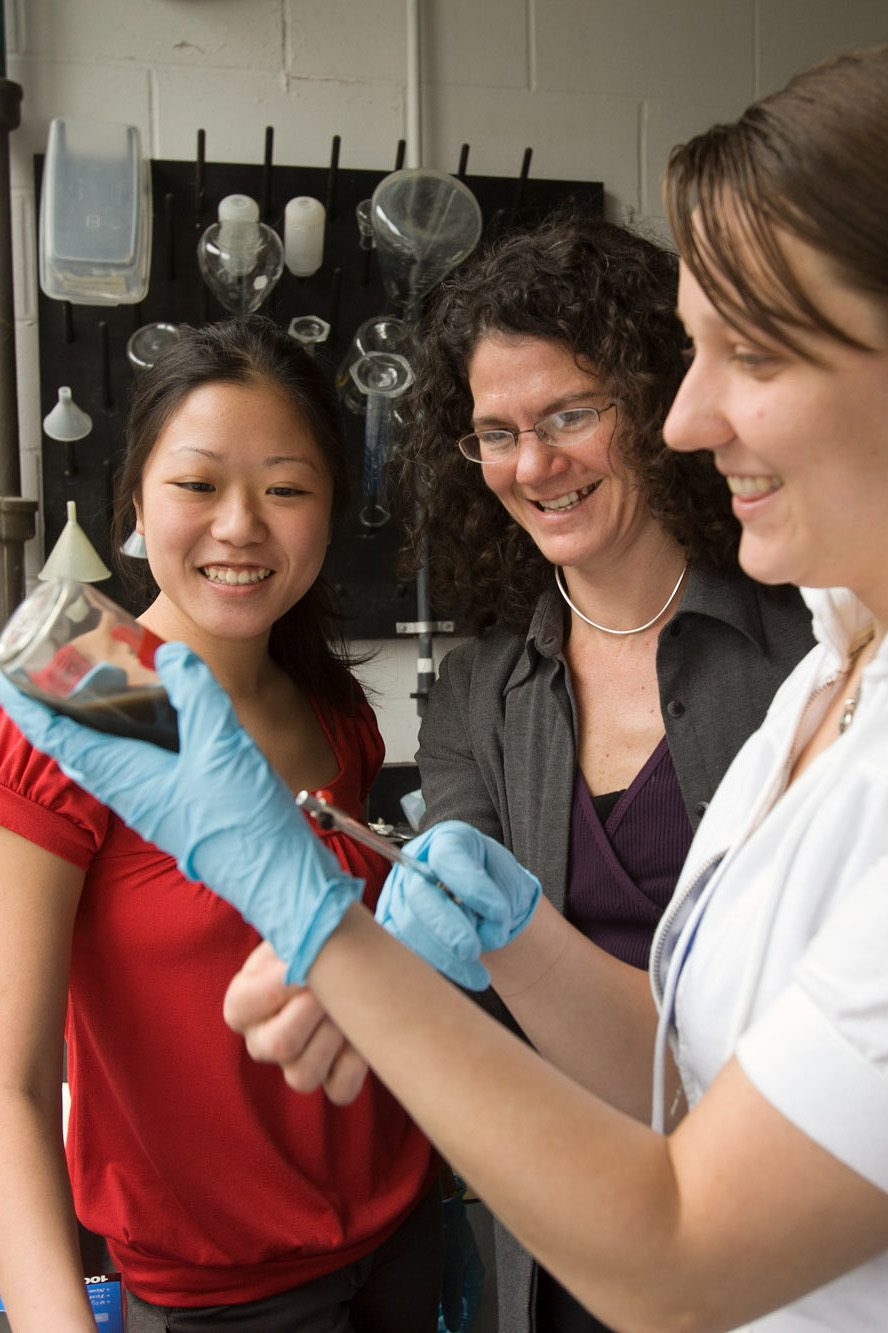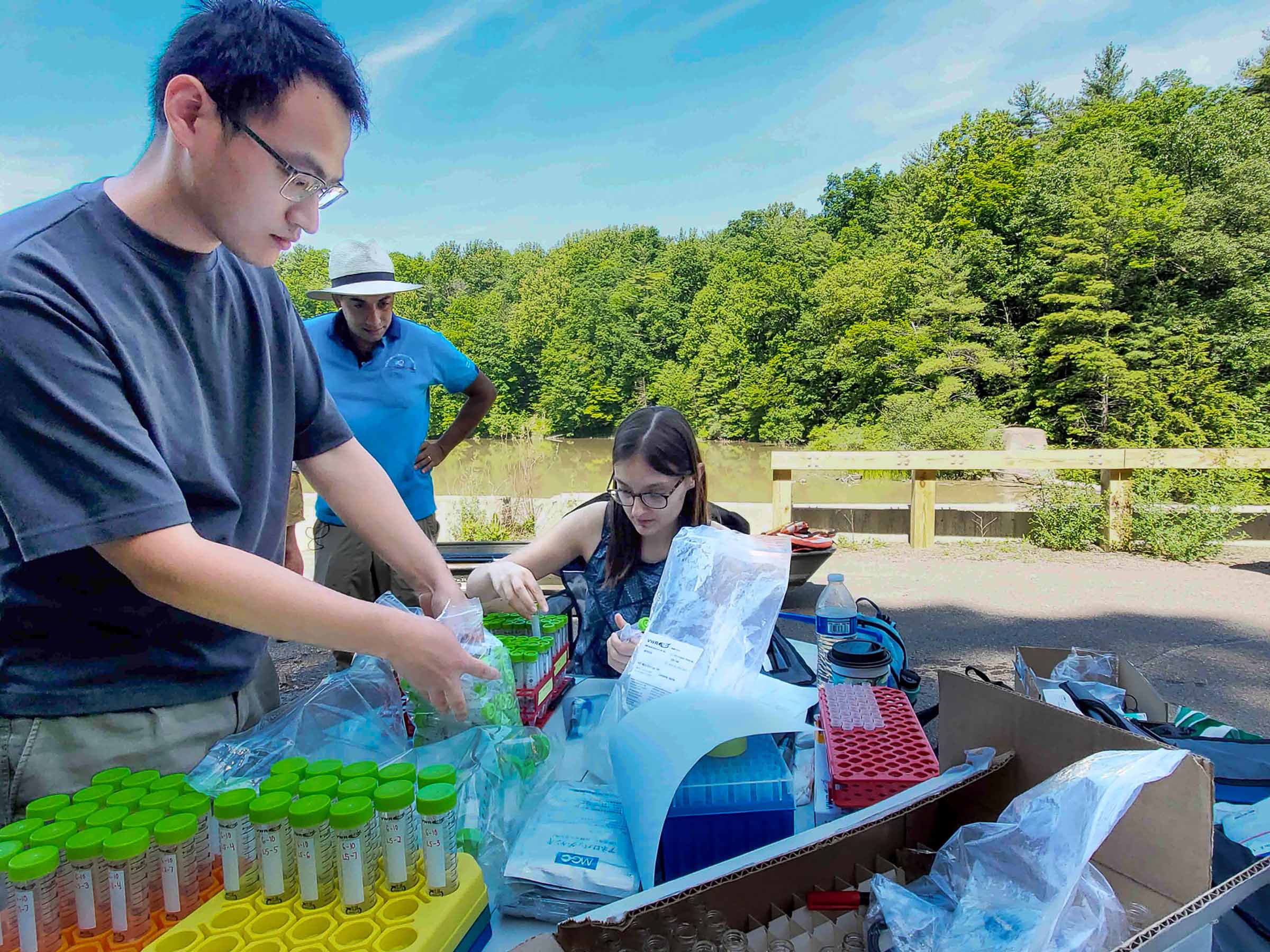Why Environmental Engineering?
Environmental engineers design systems to provide energy from renewable and sustainable energy sources, and prevent, reduce or repair environmental damage caused by human activities. They work to contain, reduce or prevent hazardous waste, air pollution, or contaminated streams and groundwater. They may also design water treatment plants to deliver safe drinking water to municipal residents or design pollution control systems for industries and cities. They help in the reconstruction of stream channels, and wetlands and estuaries to preserve the environment and to maintain habitat for fish and wildlife.
The Bachelor degree program in Environmental Engineering is jointly offered by the College of Engineering and the College of Agriculture and Life Sciences at Cornell University.

Key Details
-
Accredited Bachelor of Science Degrees
Graduates earn an accredited Bachelor of Science (B.S.) degree, and the program is accredited by the Engineering Accreditation Commission of ABET.
-
Licensing Exam Eligibility
By receiving a degree from an accredited institution, students are automatically eligible to take Part A of the NYS professional licensing exam.
-
Professional Engineering Exam Credit
Graduates are credited with eight years of education/experience towards the total of twelve years needed to be eligible to sit for the Professional Engineering Exam, which is required in order to register as a Professional Engineer.
-
Diverse Curriculum
The program includes requirements to take courses outside of engineering. We supports students’ interests in the arts, humanities, social sciences, campus activities, and service opportunities.
Career Paths
Environmental Engineers may work as:
-
researchers
-
designers
-
planners
-
operators of pollution control plants and water supply systems
-
educators
-
consultants to private and public businesses
-
government regulatory agency officials
-
program managers in profession and technical engineering societies
How to Affiliate
All admitted Cornell Engineering students start without a declared major to explore options. They take core math and science courses, engineering distribution courses, and writing seminars before choosing a major in their third semester (fall of sophomore year).
A number of curriculum requirements are set by Cornell Engineering. These include Approved Electives, Technical Communications, and the Liberal Studies Distribution requirement. Not discussed are the additional common college requirements usually taken before affiliation such as mathematics, physics, chemistry, and freshman writing seminars.
-
Affiliation Eligibility Requirements
Full list of requirements for the Environmental Engineering Major.
-
Ready to Affiliate?
Students interested in affiliating with environmental engineering should contact the undergraduate program coordinator.
Contact Us
-
Undergraduate Program Coordinator
Nicholas Wagner
Hollister Hall, Room 221
607-255-3412
nw346@cornell.edu
